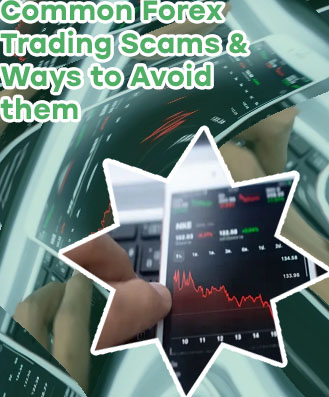
- Ecn forex broker
- Best forex
- Top broker forex india
- Regulated forex broker india
- Top rated forex broker
- Top 3 best forex brokers
- Best app for forex trading in india
- Top forex broker in world
- Forex broker reviews
- Forex broker volume
- Top 10 forex brokers in india
- Free credit forex broker
- Top forex broker
- Best forex application
- Best forex broker for indices
- Forex trading in india
- Best forex and crypto brokers
- Best paypal forex broker
- How to start forex trading
- Is forex trading legal in india
- Forex
- Top forex brokers
- Best forex broker for day trading
- Forex brokers in india
- Forex trading profit per day
- Forex trading us broker
- How much can be made from forex trading
- Forex for you login
- Rbi ban forex trading app list
- Forex broker
- Types of brokers in forex
Forex broker inc scam in hindi

Navigating the world of forex trading can be a daunting task, especially when faced with the risk of falling victim to a scam broker. To help traders avoid fraudulent schemes, we have compiled a list of 4 articles that expose scam forex brokers and provide valuable insights on how to protect your investments. From identifying warning signs to conducting thorough research, these articles will equip you with the knowledge needed to make informed decisions and safeguard your funds in the forex market.
Navigating the world of forex trading can be tricky, especially with the presence of scam forex brokers. To help you steer clear of fraudulent practices, we have compiled a list of 4 articles that will provide you with valuable information on identifying and avoiding scam forex brokers. From tips on conducting thorough research to red flags to watch out for, these articles will equip you with the knowledge needed to protect your investments and trade with confidence.
How to Spot a Scam Forex Broker: Red Flags to Watch Out For

When it comes to trading in the Forex market, one of the most important decisions you will make is choosing the right broker. Unfortunately, there are many scam brokers out there looking to take advantage of unsuspecting traders. In order to protect yourself from falling victim to a fraudulent broker, it is crucial to know how to spot the red flags.
Here are some key red flags to watch out for when choosing a Forex broker in India:
-
Lack of Regulation: One of the biggest red flags is a broker that is not regulated by a reputable regulatory body such as the Securities and Exchange Board of India (SEBI). Always ensure that the broker you are considering is properly licensed and regulated.
-
Unrealistic Promises: Be wary of brokers that promise guaranteed profits or high returns with little to no risk. Forex trading is inherently risky, and no broker can guarantee profits. If it sounds too good to be true, it probably is.
-
Poor Customer Service: A reputable broker will have responsive customer service that is available to assist you with any issues or concerns. If you are having trouble getting in touch with your broker or if they are unresponsive to your inquiries, it may be a sign that they are not trustworthy.
-
High Fees and Hidden Charges: Some scam brokers
Tips for Researching Forex Brokers: How to Verify Legitimacy
As a resident of Mumbai, I understand the importance of conducting thorough research before choosing a forex broker to ensure legitimacy and security in trading. With the increasing number of online brokers in the market, it can be challenging to distinguish between trustworthy brokers and scams. Therefore, it is essential to follow certain tips to verify the legitimacy of a forex broker.
One of the key factors to consider is regulation. A legitimate forex broker in India should be regulated by the Securities and Exchange Board of India (SEBI) or other reputable regulatory bodies such as the Financial Conduct Authority (FCA) in the UK or the Commodity Futures Trading Commission (CFTC) in the US. Regulatory oversight helps ensure that brokers adhere to strict standards and guidelines, protecting traders from fraudulent activities.
Additionally, it is crucial to research the broker's reputation and track record in the industry. Look for reviews and feedback from other traders to gauge the broker's reliability and customer service. A reputable broker will have a solid reputation and positive feedback from clients.
In conclusion, when researching forex brokers in India, it is essential to verify their legitimacy by checking their regulatory status, reputation, and track record in the industry. By following these tips, traders can make informed decisions and protect their investments in the forex market.
Common Scams in Forex Trading and How to Avoid Them
Forex trading has become increasingly popular in India, with many individuals looking to capitalize on the potential financial gains it offers. However, with the rise in popularity of forex trading, there has also been a surge in scams targeting unsuspecting traders. It is essential for traders to be aware of these common scams and how to avoid falling victim to them.
One of the most prevalent scams in forex trading is the "broker scam". This scam involves fraudulent brokers who promise high returns on investments but end up disappearing with the trader's funds. To avoid falling prey to this scam, traders should always do thorough research on any broker before investing with them. It is essential to ensure that the broker is regulated by a reputable authority and has a good track record of customer satisfaction.
Another common scam is the "signal seller scam". Signal sellers claim to have insider information or expertise that can help traders make profitable trades. However, most of these signals are often worthless and can lead to significant financial losses. Traders should be wary of any signal seller who promises guaranteed profits and should instead rely on their own research and analysis when making trading decisions.
In conclusion, it is crucial for forex traders in India to be vigilant and cautious when navigating the forex market. By being aware of common scams and taking steps to avoid
Regulatory Bodies in Forex Trading: What You Need to Know
In India, the forex trading market is regulated by the Reserve Bank of India (RBI) and the Securities and Exchange Board of India (SEBI). These regulatory bodies play a crucial role in ensuring the integrity and stability of the forex market in the country.
The RBI is responsible for regulating the foreign exchange market in India, including setting the rules and regulations governing forex trading activities. It also oversees the functioning of authorized dealers and money changers in the country. On the other hand, SEBI regulates the securities market in India, which includes overseeing the activities of forex brokers and other market participants.
It is important for forex traders in India to be aware of the regulatory framework governing their activities. By understanding the roles and responsibilities of the RBI and SEBI, traders can ensure that they are operating within the legal boundaries set by the regulatory bodies. This knowledge can help traders avoid potential legal issues and protect their investments in the forex market.
In conclusion, regulatory bodies such as the RBI and SEBI play a crucial role in ensuring the integrity and stability of the forex market in India. Traders should familiarize themselves with the rules and regulations set by these bodies to operate legally and protect their investments.